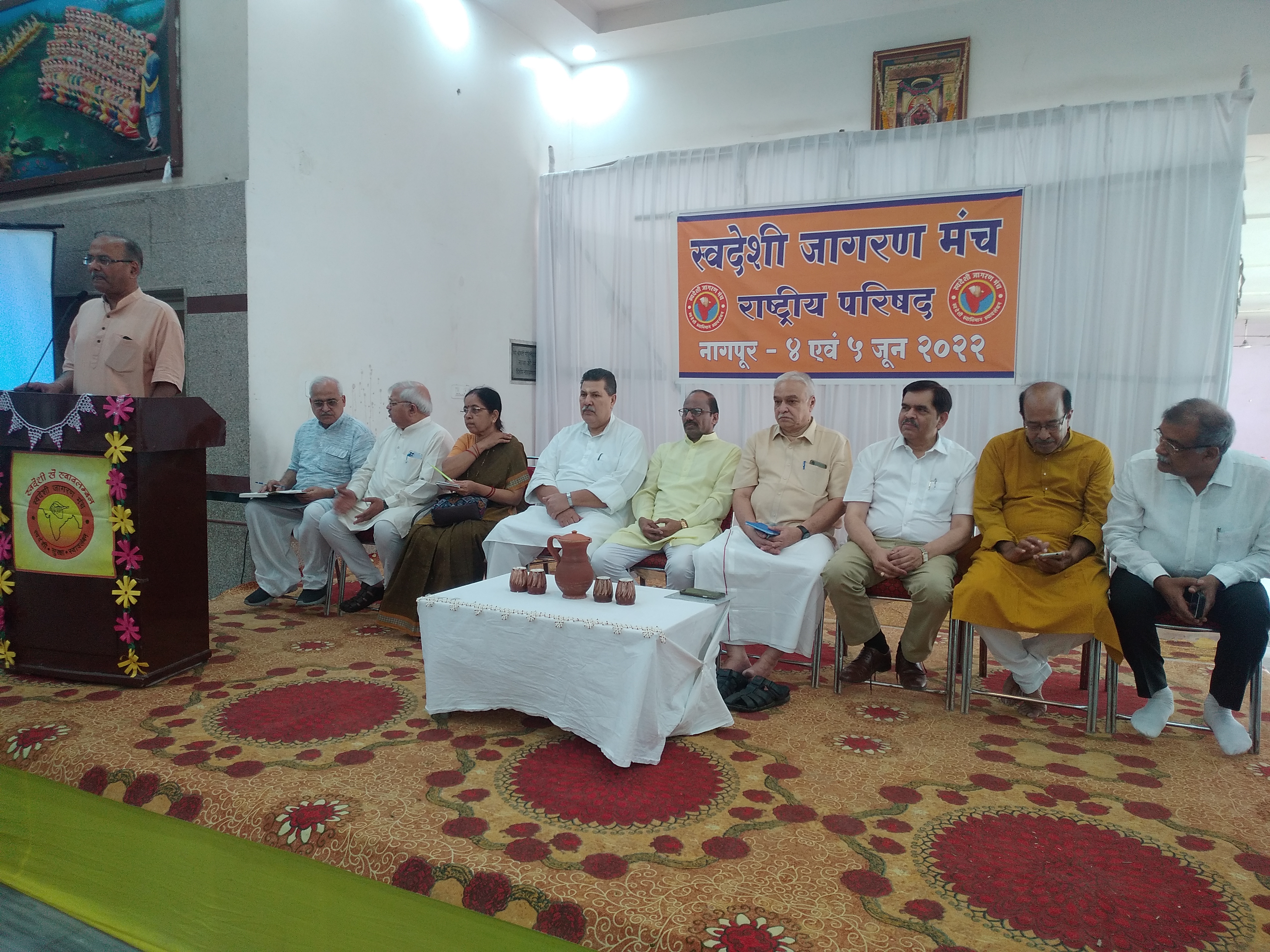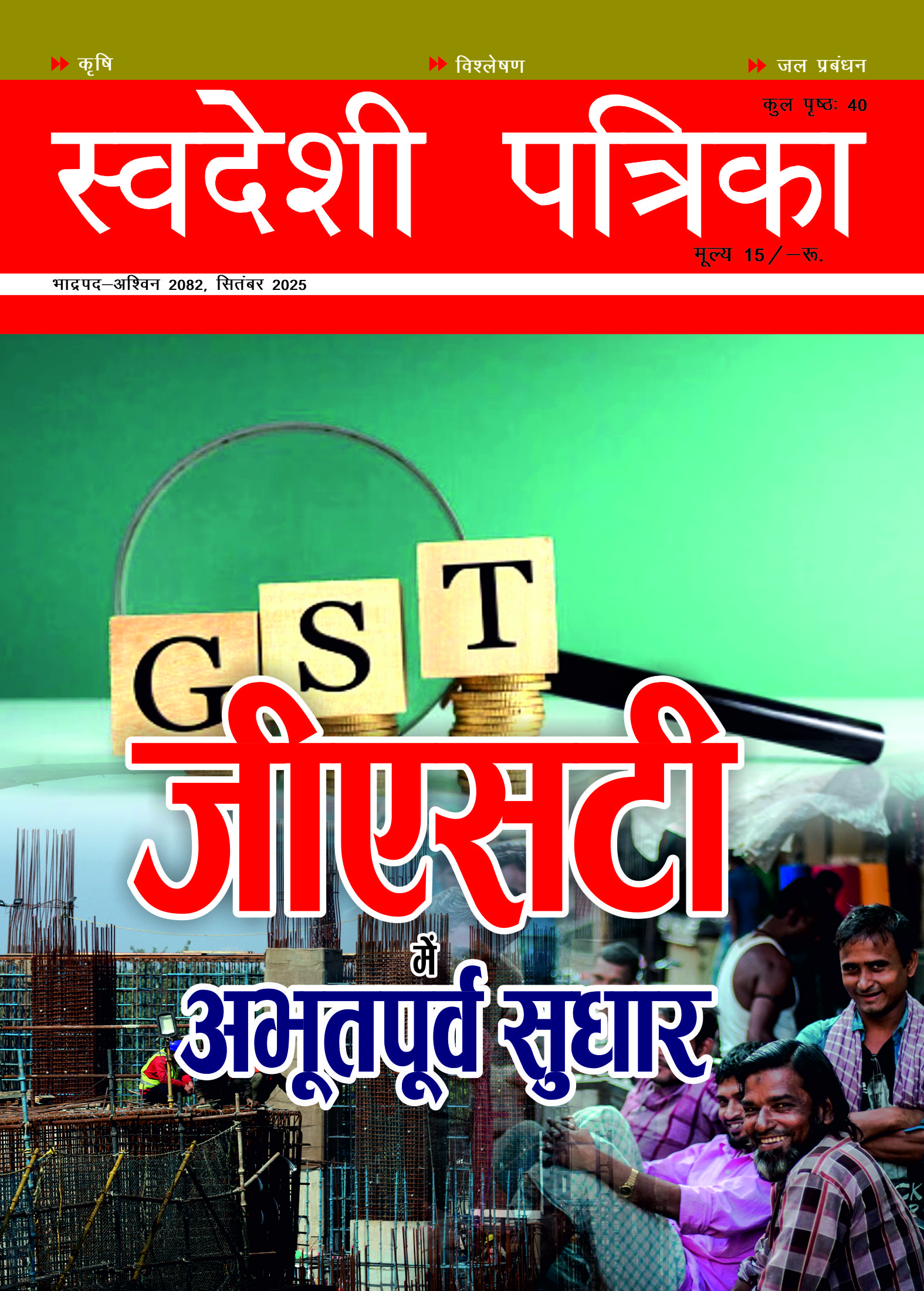
Need to protect national interests in WTO (Resolution-1, NCM, Nagpur)
The 12th Ministerial Conference of world Trade Organisation is being held from 12th June to 15th June, 2022 at Geneva, Switzerland. Among many issues under discussion, four issues which will attract focus of member countries, which carries special importance for people of Least Developed Countries and developing countries are decisions on temporary moratorium on custom duty on electronic transmission; TRIPS waiver on vaccine, medicines and relate d technologies for treatment of COVID-19; permanent solution to Peace Clause in Agreement on Agriculture on public stockholding for food security and fisheries subsidies.
1. SwadeshiJagranManch wishes to put on record its appreciation for Government of India, for its reported decision to oppose moratorium on tariff on import of e products, which is continuing since 1998. We push to put on record that current moratorium on custom duty on electronic transfer is against the interest of developing countries in general and India in particular. This is not only impacting job creation in electronic sector, but also the revenue generation. Imposition of tariff on electronic transmission will be the first condition for success in fourth industrial revolution, namely, digital industrialisation. The surging trend in digitisation of greater number of products, especially increasing percentage of 3D printing of manufactured goods is showing further losses of tariff revenue.
2. Humanity has gone through a worst tragedy in the past two years, and people in different parts of the world are still struggling for equitable access to diagnostics, medicines, vaccine and other treatments. Main culprit for the same is TRIPS Agreement made in the beginning of WTO at Marrakesh. Exceptions permitted in the TRIPS Agreement on the issue of public health were ineffective as were structured with lots of conditions which were either difficult to comply or were impractical. Whatever small was achieved in Doha Declaration as TRIPS flexibilities has been made ineffective by developed countries, especially USA by forcing developing countries as well as the least developed countries to incorporate more restrictive conditions known as TRIPS Plus and Data Exclusivity in FTAs with them.
India, Africa Group and other supporting countries proposed a TRIPS waiver for vaccine, medicines and consumables for treatment of COVID-19 which was initially opposed by the developed countries including USA, EU and Japan later on agreed to text based negotiations. However, the text circulated is far from useful for the purpose enshrined in India-South Africa proposal of TRIPS waiver. It is unfortunate that the proposal of the developed world is limited to TRIPS waiver for vaccine only and that too, limited to import and exports of the vaccine. Need of the hour is TRIPS waiver extended to Medicines, diagnostic, disposables and all types of equipments used in the treatment of COVID. We call upon Government of India to take up the issue at MC12 forcefully and give lead to the developing countries and LDC for this much needed extensive TRIPS waiver.
3. The WTO negotiations on agriculture remain deadlocked since Doha Declaration in 2001. The US and EU wanted an agreement not only on agriculture but also in the other negotiating areas such as non-agricultural market access and services. In 9th MC at BALI in December, 2013, a decision on public stockholding for food security purposes was taken. Members agreed to put in place an interim mechanism and to negotiate on an agreement for a permanent solution applicable to all developing countries. After Bali, the first proposal for a permanent solution came from India alongwith other countries of the G–33 in July 2014, which essentially demanded to move public stockholding for food security into the Green Box. The proposal also called a ‘permanent solution’. Good number of years have passed since then and countries like India are still waiting for a permanent solution on food security and public stockholding to arrive at the WTO. It’s notable that India had enacted National Food Security Act in 2013 which mandates the Central and State governments to implement public distribution system to address food security to the vulnerable society of the country, nutritious food for pregnant women and lactating mothers and Mid-Day Meal scheme for school children. These schemes are being seen in violation of permissible subsidies under Agreement on Agriculture and are being objected to. We have seen the importance of public stockholdings, for food security in the last two years of Corona pandemic. We appreciate the proposal of Africa group, G33 and others, strongly supported by India for a permanent solution, undoing the wrong done at WTO initial agreements, when the base years was kept at 1986-88 for the purpose of calculation of agriculture subsidies. We call upon the Government to press for an agreement which doesn’t come in way of food security for crores of Indian people and also undo the historical wrongs in terms of classification of subsidies. There is no justification of allowing more than $300 billion of subsidies by US and objecting a meagre subsidies given by Indian government for food security of people. With the COVID-19 pandemic still wreaking havoc on lives and livelihoods of small farmers, finding a permanent solution to the issue should be a priority for India in forthcoming 12thMC.
4. The mandate to discipline fisheries subsidies comes from the 2001 Doha Ministerial Conference which required to prohibit certain forms of fisheries subsidies which contribute to overfishing and overcapacity (OFOC), and eliminate subsidies that contribute to illegal, unreported and unregulated (IUU) fishing. There are wide differences between WTO Member States on many key issues, including the definition of harmful subsidies; the definition of IUU and how it may include small fishers in developing countries; scope and definitions of the different concepts, including of small fishers; and the management role of the WTO.
SwadeshiJagaranManch strongly opposes the developed countries suggestion for an exemption for low-income, resource-poor or livelihood fishing or fishing-related activities in developing countries operating within 12 nautical miles, with a limit of 5 years for fishing in the EEZ.
SwadeshiJagranManch calls upon the government to safeguard the interests of our small fishermen and other fishing activities for the livelihood of our vast coastal population.


